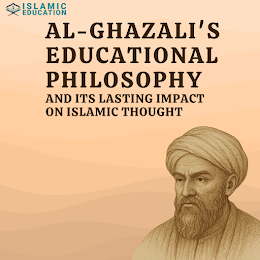Abu Hamid al-Ghazali stands as one of the most respected thinkers in Islamic history. His ideas on education continue to shape Islamic thought, centuries after his lifetime. Al-Ghazali believed learning should shape character and soul, not simply fill minds with facts.
This article outlines his educational philosophy—its roots, values, and broad effects. You'll see how his approach links faith with everyday knowledge and why his ideas remain relevant for teachers and students today.
Al-Ghazali: The Scholar and His Era
Al-Ghazali’s life offers a window into a dynamic age for Islamic learning. His contributions as a scholar and teacher were shaped by the social and intellectual currents of his time. Understanding his background and the world he lived in helps explain the lasting influence of his ideas.
Early Life and Education
Al-Ghazali was born in 1058 in Tus, a city in present-day Iran. Raised in a religious family, he gained a strong grounding in Islamic law and theology early on. His father’s passing led a Sufi friend to care for his upbringing, which exposed Al-Ghazali to both legal studies and spiritual teaching.
He moved quickly through the ranks of local educational circles. By his teenage years, Al-Ghazali had already earned respect as a promising student. Scholars recognized his sharp mind and deep curiosity about faith and knowledge.
The Intellectual Climate of Al-Ghazali’s Time
The Islamic world during Al-Ghazali’s era was alive with new ideas. Baghdad, where Al-Ghazali would later teach, was a hub of scholarship. Thinkers from different backgrounds debated philosophy, science, and religion. Greek philosophy, especially the works of Aristotle and Plato, had found its way into Islamic schools. This created a climate rich in both traditional religious study and foreign thought.
Some challenges of this time included:
Growing interest in logic and philosophy over traditional religious learning.
Debates about the role of reason versus faith in daily life.
Rising influence of Sufi spirituality alongside legal scholarship.
Al-Ghazali entered these debates with confidence, seeking to balance faith and logic in his work.
Al-Ghazali as Scholar and Teacher
Al-Ghazali’s career as a scholar flourished at the Nizamiyya Madrasa in Baghdad, one of the best institutions of learning at the time. He taught law, theology, and philosophy. His classes drew students from across the Islamic world.
He was known for his clear teaching style and his ability to simplify complex ideas. His writings, such as “The Revival of Religious Sciences,” brought deep subjects within reach of everyday people. Al-Ghazali’s focus was always on strengthening the moral and spiritual life of his students.
Through his role as a teacher, Al-Ghazali:
Encouraged students to link personal faith with intellectual pursuit.
Stressed the need for sincerity and humility in seeking knowledge.
Blended practical teaching with deep reflection.
Al-Ghazali’s unique approach as both thinker and educator set a lasting example for generations to come. His legacy still shapes how teachers and students approach Islamic education today.
Conclusion
Al-Ghazali’s educational philosophy stands out for its focus on both heart and mind. He showed that real learning shapes personal character, not just academic skill. His call to join faith with reason challenged scholars to look beyond technical mastery and aim for wisdom.
Educators today can draw from his blend of ethics and scholarship. Building honest, thoughtful learning communities can help students connect what they know with what they value. Al-Ghazali’s vision invites teachers and learners to seek knowledge that improves both their lives and their communities.
Thank you for reading. Your feedback and thoughts on applying Al-Ghazali’s ideas to modern education are welcome. Share your views or suggest topics for future posts.
Hazrat Hasan Ibn Ali RaḍyAllāhu 'anhu – A short biography in English
Keep visiting Islamic Education







